The Golden Harp (Piano/Choral Score)
-
Ships in 1 to 2 weeks
Details
Description
SKU: EC.8290
Composed by Gwyneth W. Walker. 21st Century. Piano/choral score. E.C. Schirmer Publishing #8290. Published by E.C. Schirmer Publishing (EC.8290).ISBN 600313482908. UPC: 600313482908. Text: Rabindranath Tagore.
The Golden Harp is the result of a commission from the Arkansas Chamber Singers for a work for chorus and string quartet. The Chamber Singers wished to collaborate with the Quapaw Quartet, comprised of musicians from the Arkansas Symphony, in presenting music written especially for the two ensembles. The poetry of Rabindranath Tagore was suggested to the composer by a member of the Arkansas Chamber Singers. And indeed this poetry is well-suited to settings for chorus and strings.
The poems are gentle and lyrical. The language is readily comprehensible and very singable. There are frequent images of floating and soaring-images congenial to the string idiom, as the bows float across the strings, or musical lines soar into the high ranges of the instruments. The opening song, I Am Here to Sing Thee Songs, contains the phrase "When in the morning air the golden harp is tuned." This beautiful image of a stringed instrument captured the composer's imagination, and led to the title of the work. All of the poetry selected for The Golden Harp is found in Tagore's collection, Gitanjali, published in 1913. The poems span the course of the poet's life. And the form of The Golden Harp mirrors this pattern.
The work is divided into seven sections: triumphant at the beginning and close (#1 Invocation and #7 Salutation); more introspective in the interior sections (#2 Beloved, #3 Prayer, #5 Thou Art and #6 My Tears of Sorrow); and rising to a celebratory middle section (#4 Light, My Light). The message of The Golden Harp is spiritual, and yet very close to the center of human emotions. Tagore's poetry extols the beauty of the divine and the beauty of the soul within-the beloved as creator, the beloved as lover. "Thou art the sky and thou art the nest as well."
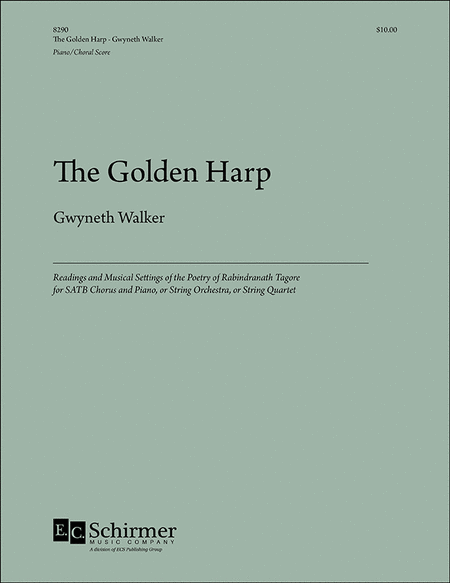

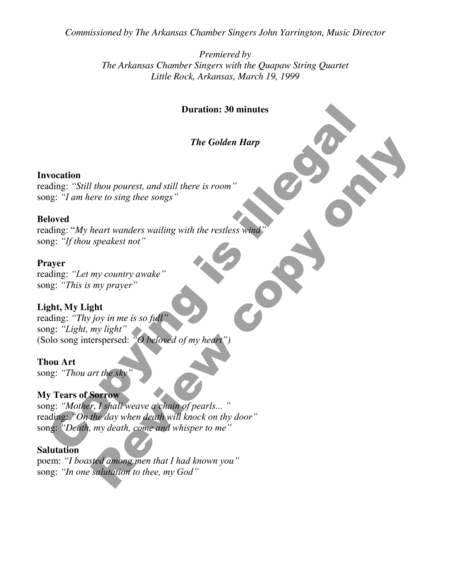
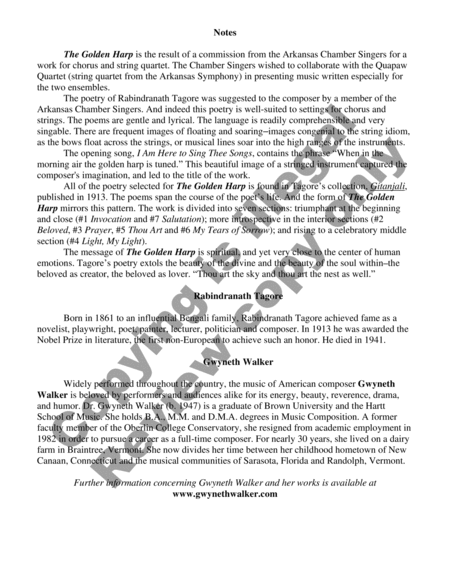
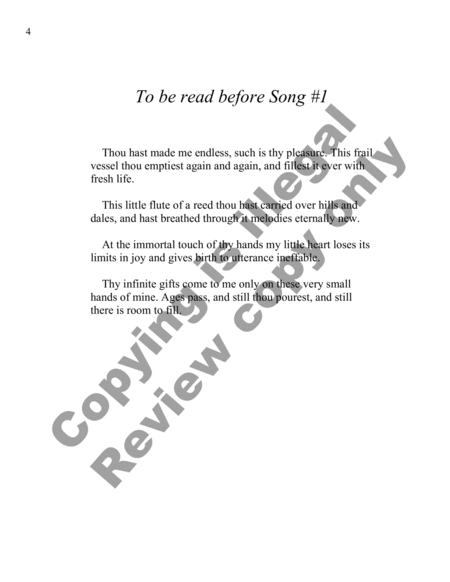
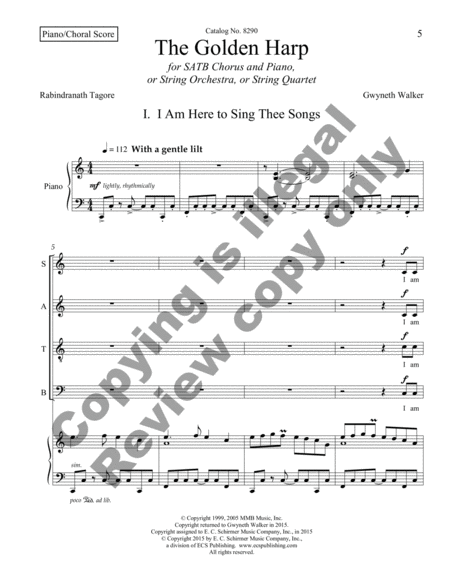
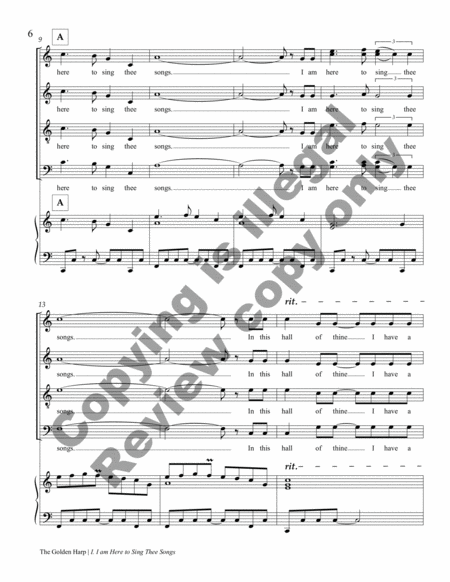
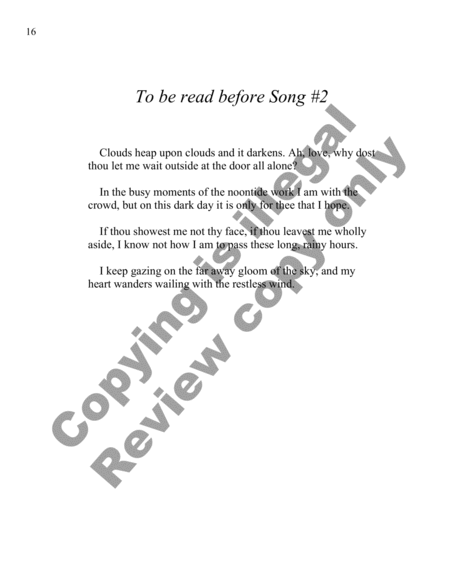
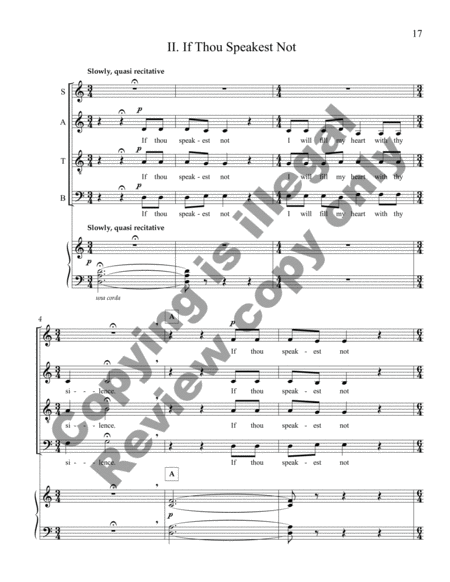
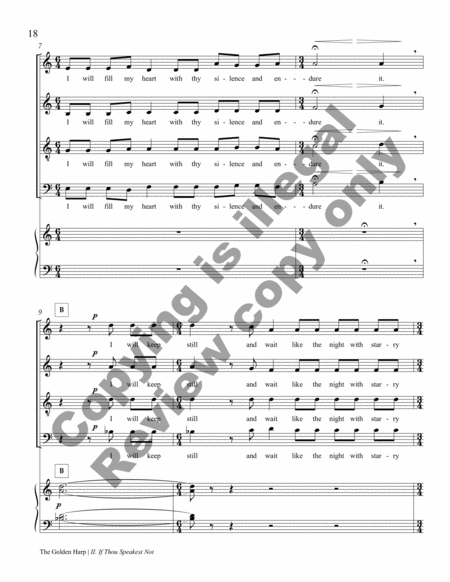
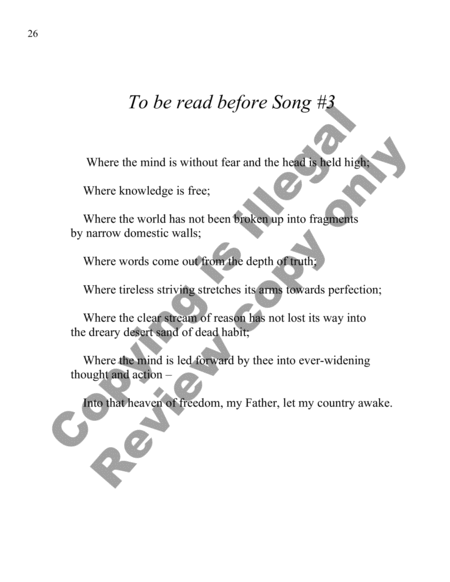
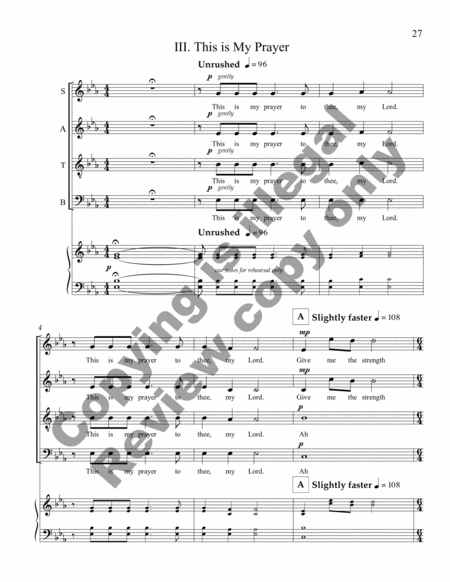
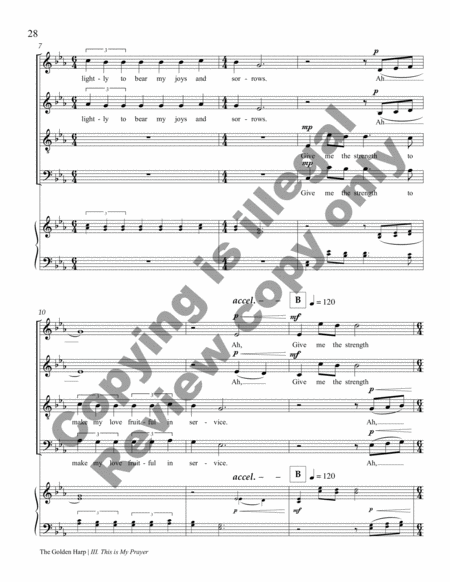
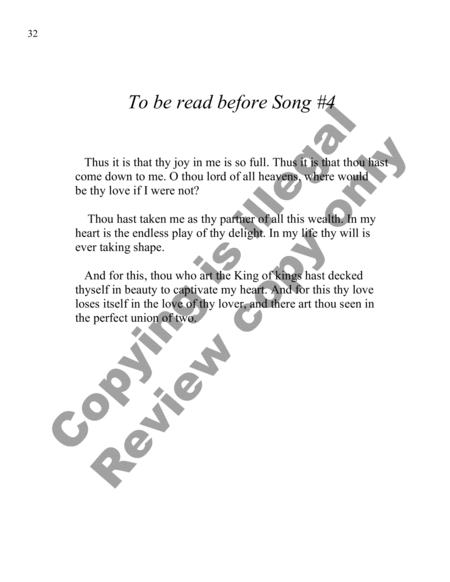
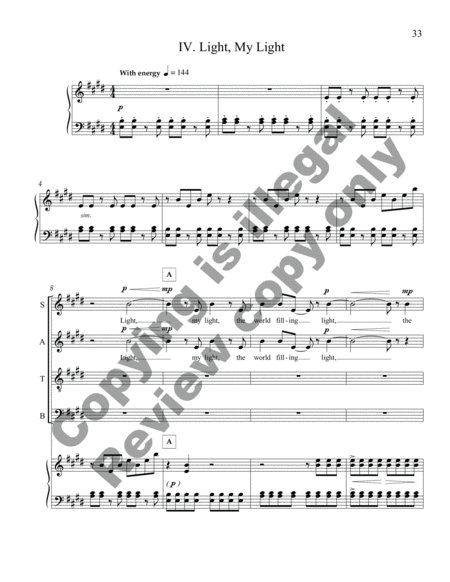
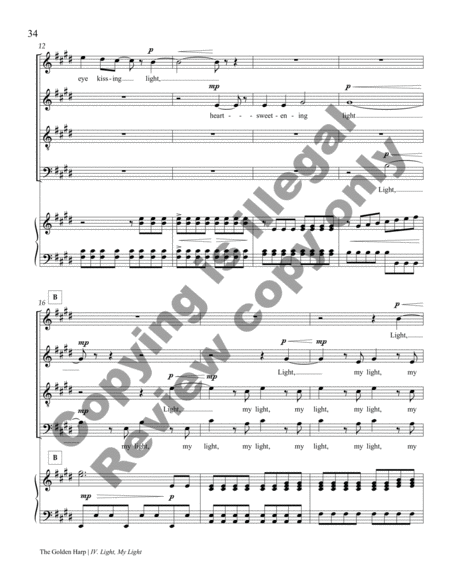
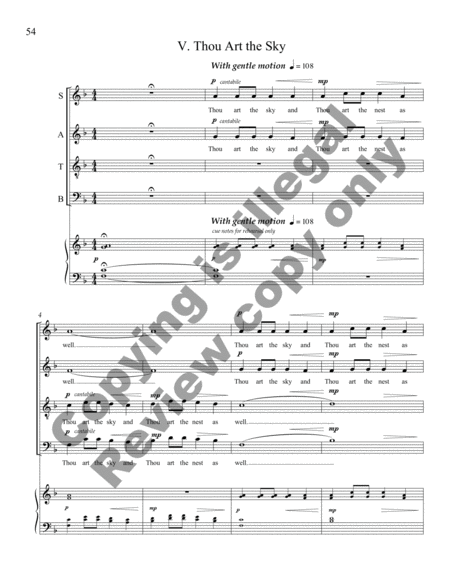
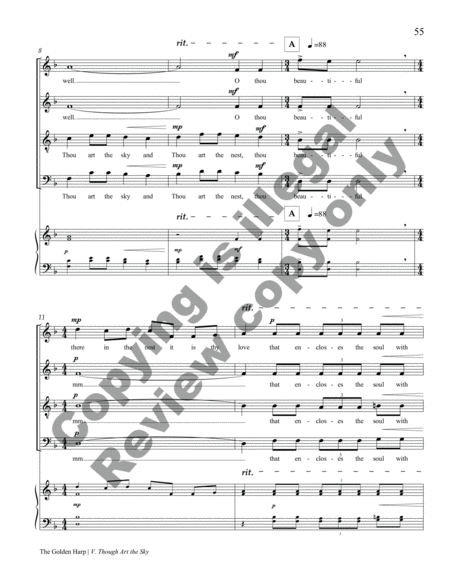
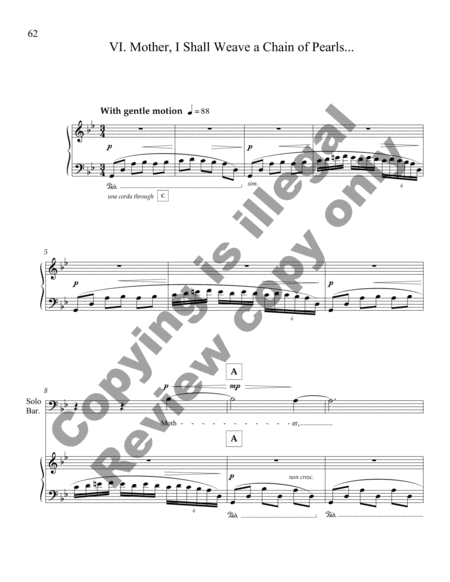
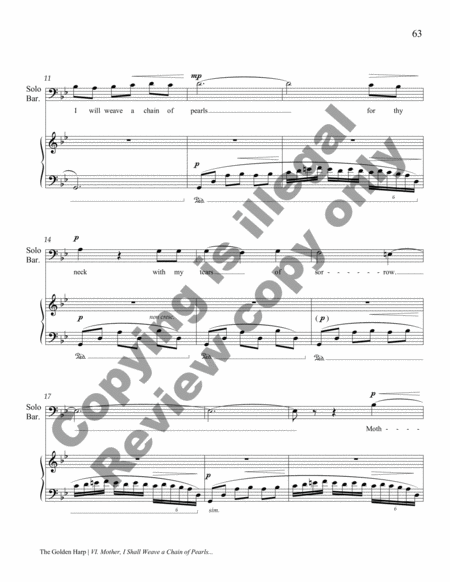
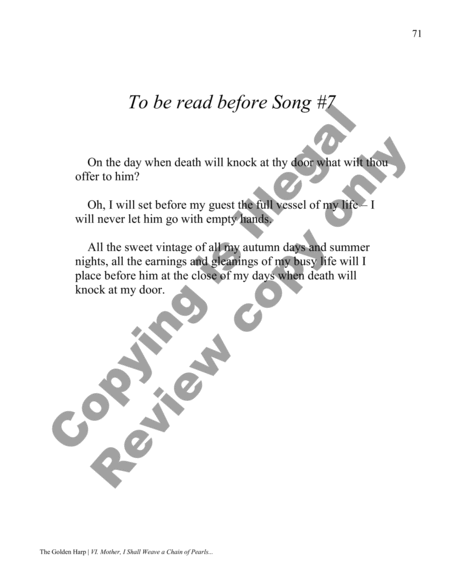
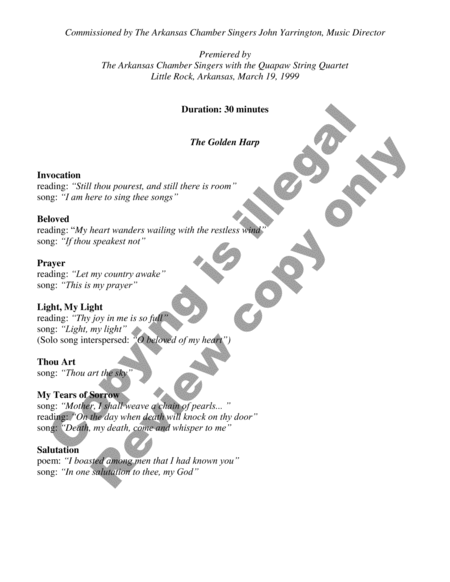
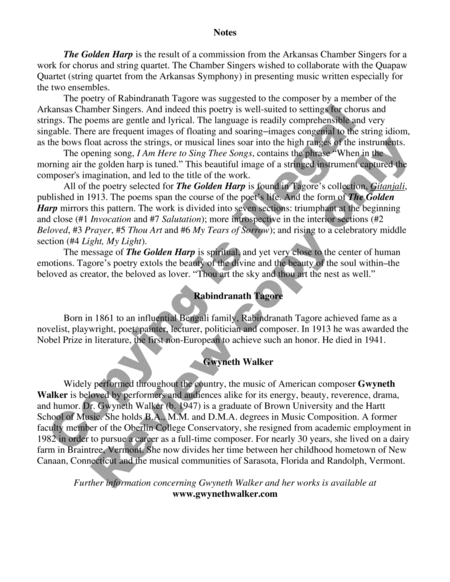
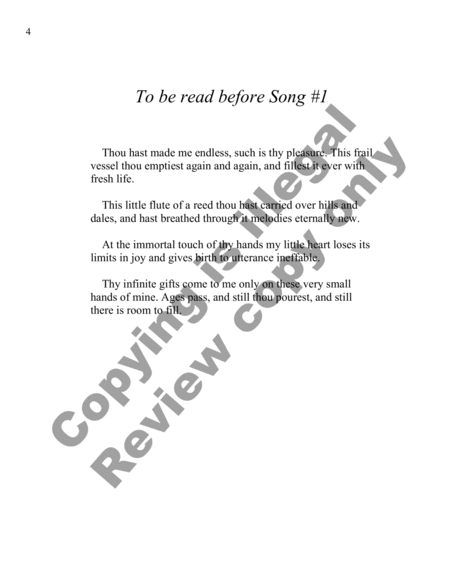
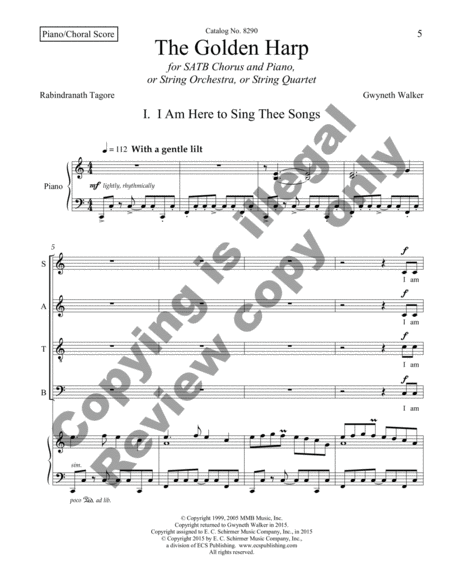
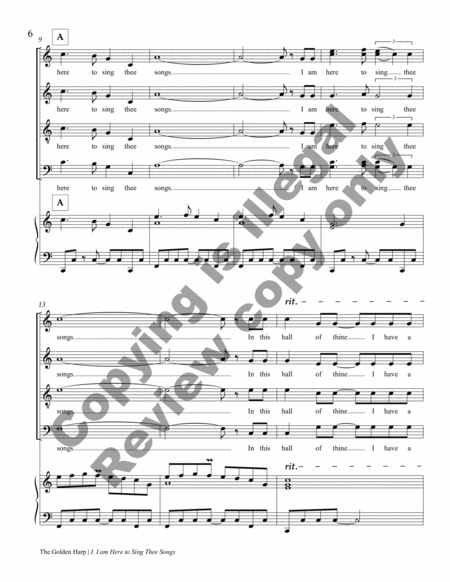
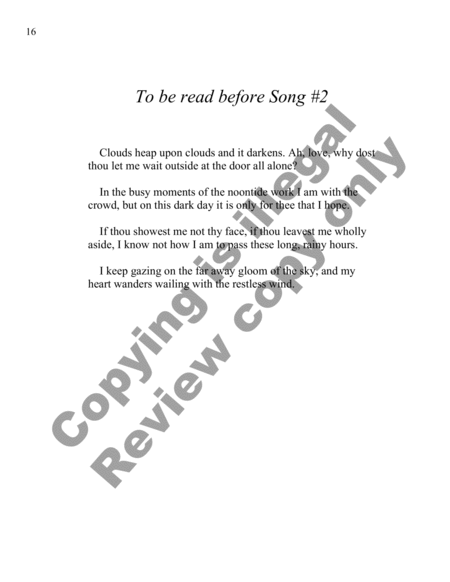
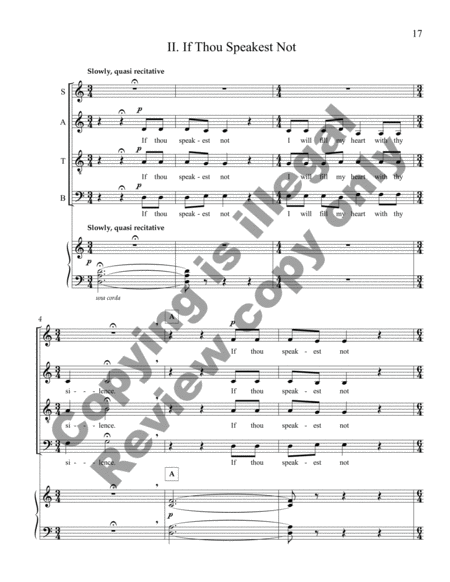
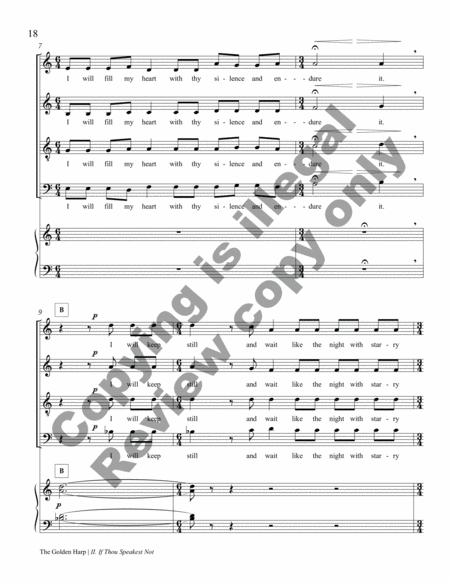
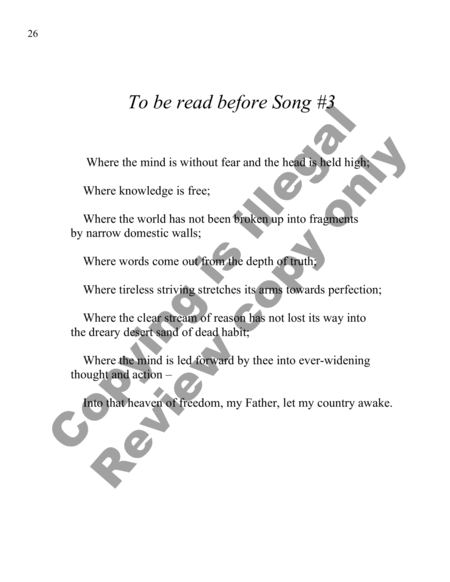
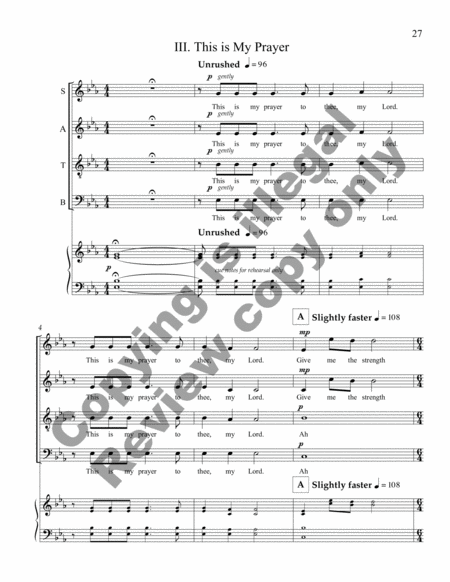
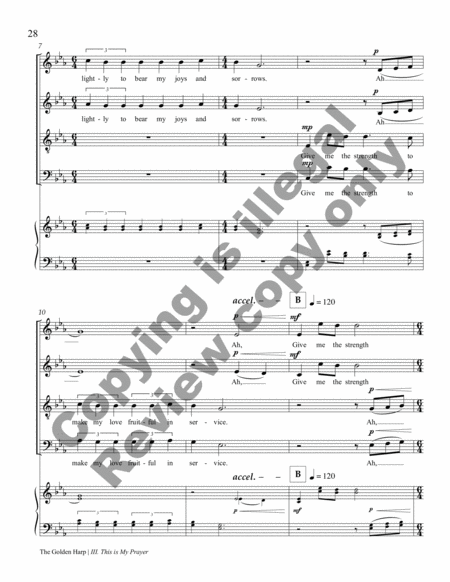
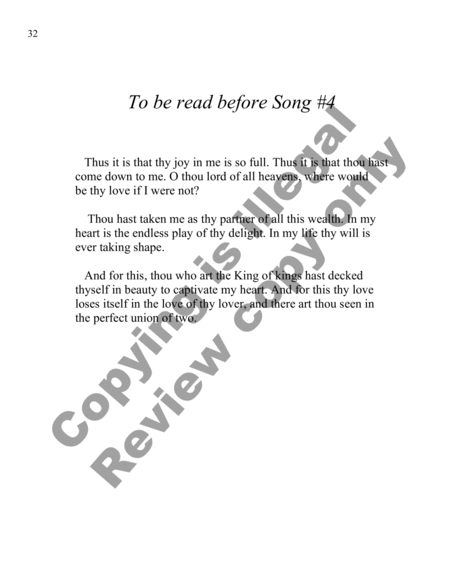
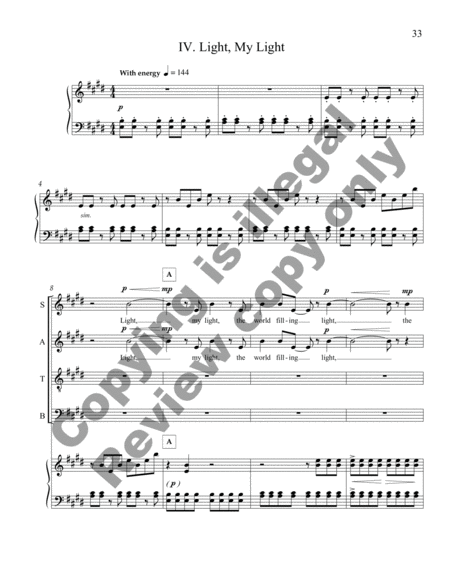
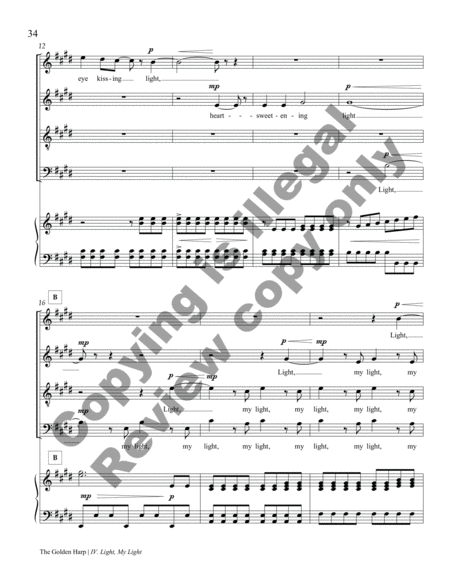
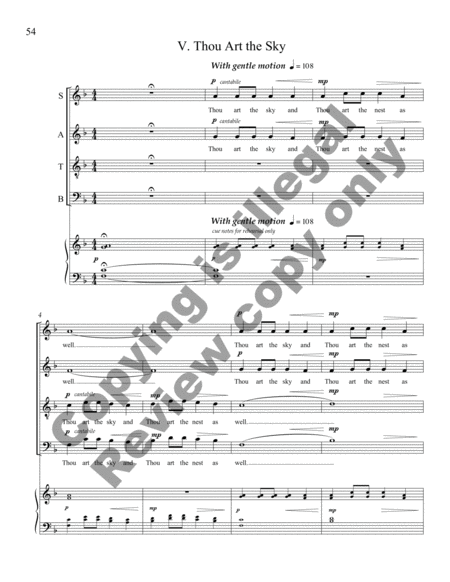
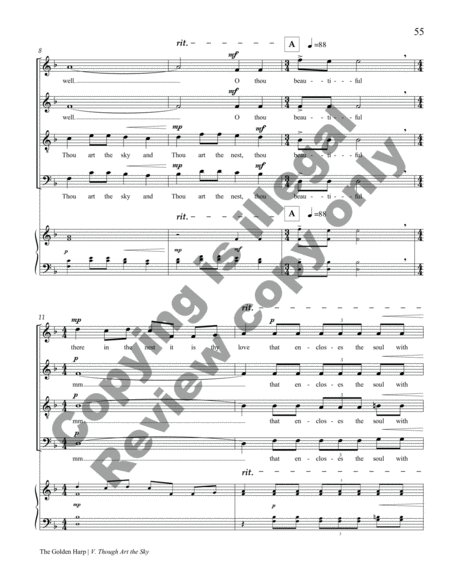
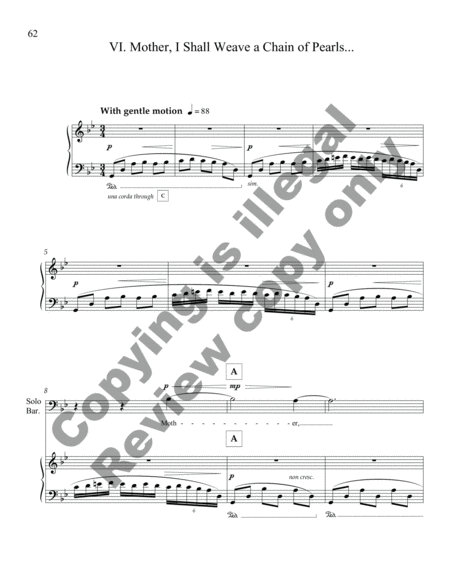
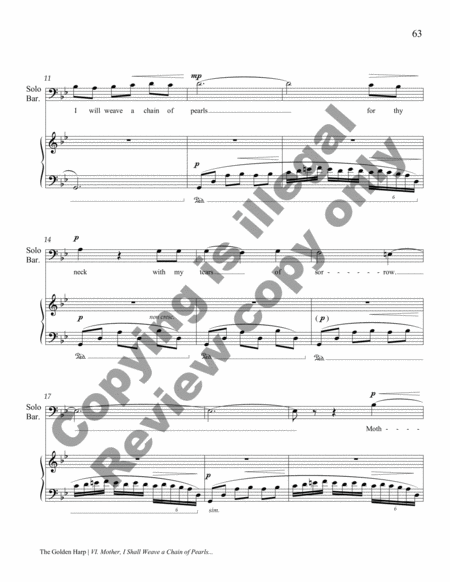
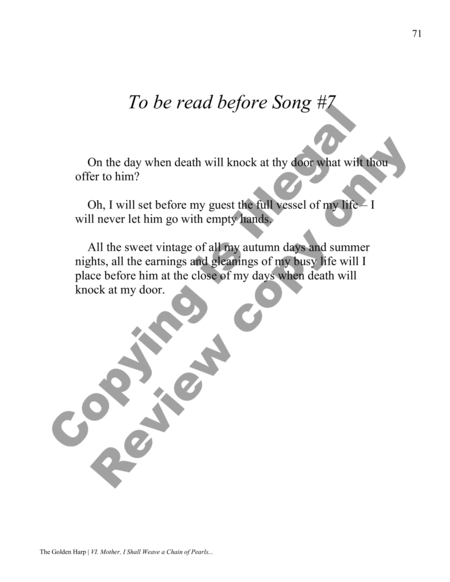
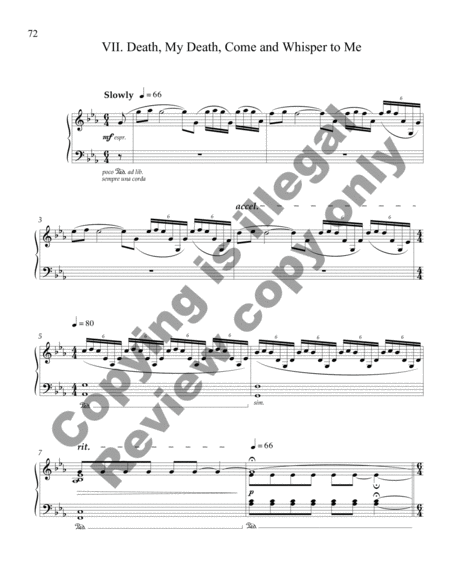
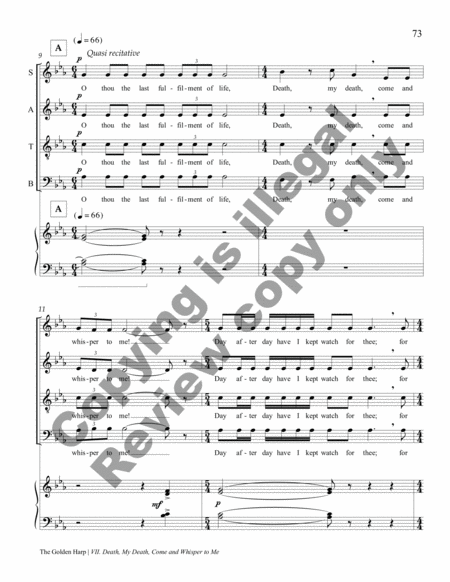
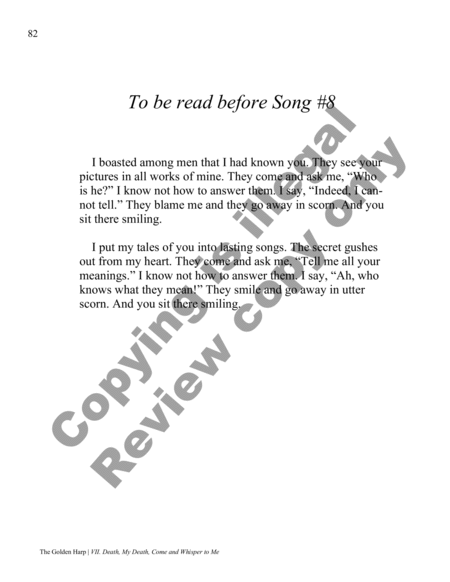
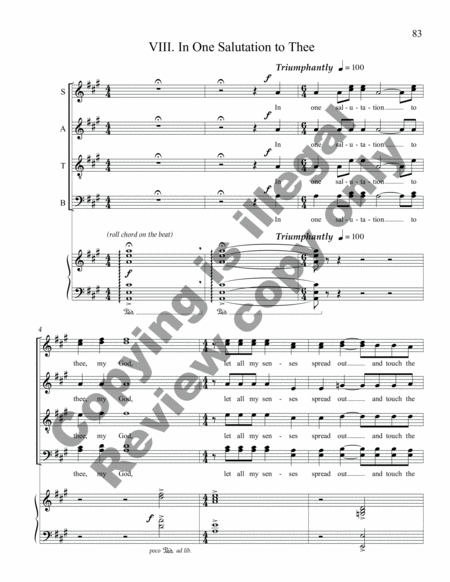
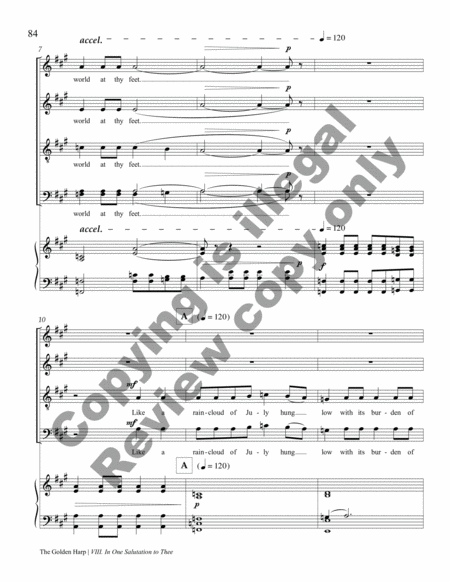
 Share
Share